The science of woman: from wandering womb to gynae nursing
13 February 2019, 17:00 – 19:00
Thackray Medical Museum, 141 Beckett Street, Leeds, LS9 7LN
For centuries, women were thought of as being at the mercy of their biology.
From the ancient Greek notion of the ‘wandering womb’ to more recent attention to PMT and the menopause, women’s health has been used to explain and justify cultural attitudes to women. Find out about the fascinating history of women’s health, alongside modern initiatives in women’s health nursing.
———————————————————————————————————–
Royal College of Physicians Medicinal plants lectures and the Poynter Lecture of the British Society for the History of Medicine
Monday 11th June 1.30pm-7.00pm
Royal College of Physicians, 11 St Andrews Place, Regents Park, London, NW1 4LE
Plants in Anaesthesia by Dr David Wilkinson, former consultant anaesthetist, St Bartholomew’s Hospital, and historian of anaesthesia
A history of plant products used in general and local anaesthesia, including curare, opium, cocaine – and lettuce!
Unicorn Horn and London Treacle: by Tony Cartwright, retired pharmaceutical regulatory consultant
The story of the College’s Pharmacopeia Londinensis on its 400th anniversary
Poynter Lecture of the British Society for the History of Medicine, 6.00pm:
The Doctor as Collector by Dr Simon Chaplin, Director of Culture and Society at the Wellcome Trust, and previously Head of the Wellcome Library
The price of £10 allows entry to all the lectures on this day, the garden tour and wine reception – booking is now open.
A De Partu event to be held later in the year is at the early planning stage.
Study day 5th May 2018 : Education for practitioners and prospective parents during the twentieth and early twenty-first centuries,to be held at Trinity College, Oxford
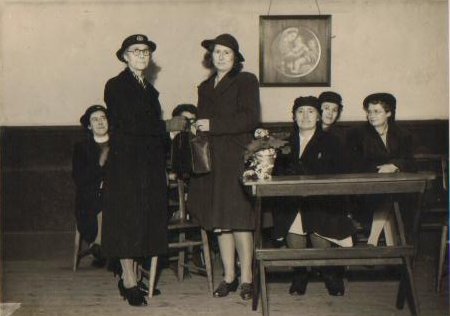
Royal College of Midwives Archives
Welcome to the study day which we are jointly organising. We’re delighted with the fantastic panel of guest speakers who have agreed to offer presentations! Below is the programme and some practical information to help you, as you make your plans.
Programme
9.30 Registration and coffee
10.00 Welcome (Janette Allotey, Chair of De Partu, Valerie Worth-Stylianou Mellon-Torch KE Fellow)
Book learning for practitioners
10.15-10.30 Introduction by Janette Allotey: The use of book learning since the 18th century
10.30-11.10 Guest speaker: Sue MacDonald (Midwifery Consultant and Educationalist, Honorary Fellow RCM, and co-editor of recent editions of Mayes Midwifery: A Textbook for Midwives)
11.10-11.50 Guest speaker: Jayne Marshall (Foundation Professor of Midwifery PFHEA at University of Leicester and co-editor of recent editions of Myles Textbook for Midwives)
11.50-12.00 Break
12.00-12.20 Guest speaker: Alison Taylor (Senior Content Strategist, Nursing and Midwifery, Elsevier): The future of Mayes and Myles
12.20-12.40 Comparative Afterword: Janette Allotey
12.40-1.30 Lunch
Educating the parents: the history of parent education for the early years
1.30-2.15 Guest speaker: Mary Nolan (Professor of Perinatal Education, University of Worcester)
The history of professional networks and teams in obstetrics
2.15-3.00 Guest speaker: Sheila Duncan (FRCOG, formerly Consultant in Obstetrics and Gynaecology, the Jessop Hospital for Women and Sheffield University)
3.20-4.20 PhD presentations (some tbc)
Tinashe Chandauka (Rhodes Scholar, Trinity College Oxford): changing the balance in
collaborative teamwork between obstetric surgeons, anaesthetics and nursing staff in sub-Saharan
Africa
4.20 Concluding remarks and end of study day: Valerie Worth
Lead contacts for the Partnership:
Janette Allotey, Chair of De Partu, and Valerie Worth-Stylianou, Trinity College Oxford, Mellon-TORCH Knowledge Exchange Fellow
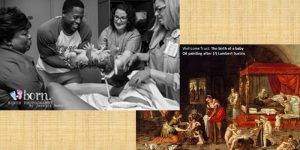 |
De Partu meeting in York Friday May 26th p.m. and Saturday May 27th York Explore Library Saturday £25.00 – includes refreshments Download programme Register via Eventbrite Recommendations for accommodation Map of York city centre |
Birth: personal stories to population policies – conference
18th-19th September 2014, University of Leeds
This two-day conference, organised by the School of History’s Health, Medicine and Society research group, brings together those interested in the history of birth, fertility, sexuality, demography and family life, from the medieval period to the present day, and in cultures across the world. The conference aims to situate birth in the contexts of family and society, evaluate the attitudes of individuals, groups and governments to birth, explore the impact of birth, and assess changes and continuities in the experience of birth.
The conference programme includes a public lecture by Professor Simon Szreter, a keynote lecture by Professor Kate Fisher, a roundtable on the politics of procreation, and a handling session with objects from Thackray Medical Museum.
At 5pm on Thursday 18th September, we will be hosting a free public lecture by Professor Simon Szreter (University of Cambridge), in association with the History and Policy Parenting Forum. The lecture is entitled ‘Births and the collective provision of welfare – the long view c.1550-2014’, and is followed by a reception. All are welcome, and no registration is necessary.
For more information, please contact the conference organisers, Alex Bamji (a.bamji@leeds.ac.uk<mailto:a.bamji@leeds.ac.uk) and Laura King (l.king@leeds.ac.uk<mailto:l.king@leeds.ac.uk).
Laura King and Alex Bamji
Health, Medicine and Society research group
School of History
University of Leeds
Michael Sadler Building
Leeds
LS2 9JT
———————————————————————————————————-
Department of History and Philosophy of Science University of Cambridge
*** The Ninth Cambridge Wellcome Lecture in the History of Medicine ***
Thursday 16 January 2014 at 4.30pm
The clinic of the birth: obstetric ultrasound, medical innovation and the clinico-anatomical project
Malcolm Nicolson (University of Glasgow)
Ultrasonic images of the fetus are now ubiquitous. Like many innovations in medical imaging, the origins of obstetric ultrasound are often located in medical physics and engineering rather than to clinical medicine. I will argue, by contrast, for the crucial role of clinical pathology in the invention of diagnostic ultrasound. Several authors, notably Foucault in The Birth of the Clinic, have described the impact on nineteenth-century medicine of systematic correlation between lesions revealed upon dissection and signs and symptoms observed while the patient was still alive. Laboratory medicine is widely presented as having eclipsed the clinico-anatomical project in the twentieth century. This lecture will show that clinical pathology continued to inspire innovation in medical imaging after 1950. It will also argue that ultrasonic scanning is more like traditional forms of physical examination than is usually assumed.
There will be tea before the lecture, at 4pm, and a drinks reception afterwards, at 6pm.
*** Workshop ***
In addition, at 11.30am the same day Professor Nicolson will lead a discussion of a precirculated paper on James Young Simpson, the practice of gynaecological examination, and the nineteenth-century medical gaze.
Historians of gynaecology and obstetrics enjoy relating tales of the eighteenth-century man-midwife fumbling blindly under bedclothes or petticoats. Such stories serve to mark a vivid contrast between an older, backward form of practice and a reformed gynaecology led by far-sighted men like James Young Simpson, Edinburgh Professor of Midwifery and pioneer of obstetric analgesia. It is assumed that Simpson, as a disinterested scientific clinician, would have had unrestricted access to the bodies of his patients. The removal of prudish hindrances signals how far gynaecology had emancipated itself from a benighted past. However, reading Simpson, it is evident that, in mid century, the practitioner’s ability to examine female patients remained constrained by social conventions. Thus, the extent to which Simpson’s practice represents a complete departure from older modes of gynaecological work has been exaggerated. By the 1850s, the medical gaze had gained only partial and conditional access to the female body.
Lecture and workshop are free and open to all.
More information: http://www.hps.cam.ac.uk/medicine/wellcomelecture2014.html
Department of History and Philosophy of Science, University of Cambridge, Free School Lane, Cambridge CB2 3RH.
I am pleased to announce the following symposium:
Regards socio-historiques sur la santé comme problème public : don et transplantation d’organes, cancer, sida, dépendance au jeu et santé mentale [Historical and sociological perspectives on health as a public problem: organ donation, cancer, AIDS, gambling addiction and mental health].
This symposium will be held in French, on February 13th, 2014, at the University Institute of the History of Medicine and Public Health at Lausanne, Switzerland.
Programme and registration
For any queries, please contact: raphael.hammer@hesav.ch
Best wishes
Raphaël Hammer University of Health Sciences (HESAV), Institute of Health Research, University of Applied Sciences and Arts, Wester Switzerland (HES-SO) 1011 Lausanne Switzerland
Raphaël HAMMER, Professeur HES-S2, Av. de Beaumont 21, 1011 Lausanne t : +41 21 316 81 19 raphael.hammer@hesav.ch
www.hesav.ch
Professor Helen King (Open University) is speaking at the Wellcome Institute on 19 February 2013
‘Agnodice’s First Patient: Gendering Childbirth in Antiquity and Early Modern Europe’.
Conférences HUMANITAIRE & MEDECINE
14 – 15 février 2013
Les Premiers Pas, 1854-1870
for the programme see
http://histmed.unige.ch/
Making love, making gender, making babies in the 1950s, 1960s and 1970s
6 September 2013 – 7 September 2013
CRASSH, Alison Richard Building, 7 West Road, Cambridge CB3 9DT
By the end of the twentieth century, a combination of profound social changes and major techno-scientific innovations had reorganized ‘the sexual field’ into three separate systems. The early twentieth century distinction between sexual pleasure and reproduction was supplemented by one between biological ‘sex’ and social ‘gender’, in which the figures of ‘the transsexual’ and ‘transgender’ were central, with the category of ‘gender’ eventually peeling off to have an entirely different historical destiny. While the phrase ‘Sexual Revolution’ once evoked changes in sexual mores and contraceptive practices of the 1960s and after, this ‘revolution’ may have been part of a larger reconfiguration of the pleasure-, gender- and reproductive-systems – the last of which became an autonomous medical industry assisting reproduction by the end of the century. This conference will allow a comparison of the political and ethical debates over medical and cultural innovations in ‘sex’, ‘gender’ and ‘reproduction’ over the period 1950-1970.
John Snow Celebration Event at the University of York
Friday 15th March 2013
John Snow Event – Admission Free
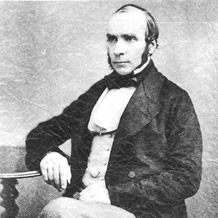
Home birth debate at University of Cambridge
Cambridge Festival of Ideas
Debating Reproduction: Hospital Birth
1st November 2012
5.30pm – 7pm
Mill Lane Lecture Room 9, 8 Mill Lane
University of Cambridge
Further Information: Home birth debate at University of Cambridge
Retelling familiar tales of pregnancy and birth: Oxford 3rd-4th July 2012
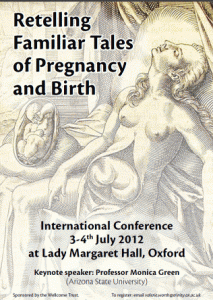
This conference brings together leading specialists from a range of the medical humanities to explore the trope of the retelling of stories about pregnancy and birth. Taking a very broad geographic and chronological focus, our objective is to encourage innovative interdisciplinary exchanges by addressing the following questions:
How did/do methods of diffusion (print culture, images, drama, ultrasound and modern medical technologies) encourage the retelling of familiar birthing tales, and how were/are new ones added?
Why did/do some stories of pregnancy and birth circulate more widely than others?
When stories are retold, which details of the original are always retained, which are lost in the retelling, and how and why do new accretions creep into the story?
Papers by some twenty researchers, from humanities, social sciences and health care, will be given over the two days, with generous time allowed for audience discussion and questions. We are grateful to the Wellcome Trust for a grant subsidising the conference.
Janette Allotey (Manchester), Helen King (Open University) Valerie Worth (Oxford)
Provisional programme
3 July 2012
10.30 Registration and coffee
11-12.15
Opening session: organisers explain why they are doing this and put in some examples from their own work
Sharon Aviva Jones (Applied Drama, Goldsmith’s, London), ‘The Performance of Childbirth: Birth Stories and Rites of Passage in the UK today’
Lisa Hinton (Health Experiences Research Group, Oxford), ‘Birth Stories on the Internet: an introduction to Healthtalkonline’
12.30 Lunch
14.00 Birth in fiction
Véronique Duché (Languages and Literatures, Melbourne), ‘The birth of/in French fiction (16th Century)’
Charlotte Woodford (German, Cambridge), ‘Feminist re-tellings of pregnancy and birth experiences in fin de siècle Germany’
Giulia Zanini (Political and Social Sciences, Fiesole, Italy – PhD) ‘“The most beautiful thing that I remember about my childhood is the story of my birth”. Italian intended parents of donor-conceived children and the creation of family histories and fairy tales’
15.30 Tea break
16.00 Telling tales under God
Rebecca Johnson (History, Princeton, US – PhD), ‘Dolores spatio quatuor dierum: Approaching Childbirth in Medieval Catalonia through a Miracle Attributed to Ramon de Peñafort’
Vina Vaswani (Director, Centre for Ethics, Yenepoya University, Mangalore, India), ‘Reinforcing values in the birth of a baby through mythological/folk tales’
17.00 Keynote, Monica Green (History, Arizona), “The Travels of Muscio: Making Medieval Obstetrics out of a Late Ancient Text”
18.30 Musical interlude and drinks
4 July 2012
9.30 The father’s tale Holly Tucker (French and Italian/History of Medicine, Vanderbilt University, US), ‘Pregnant Men?: Stories of Atypical Reproduction in Early Europe’
Angela Davis and Laura King (History, Warwick), ‘Figure of Fun to Birthing Partner? Childbirth stories of and by fathers in post-war Britain’
11.15 Coffee
11.30 Unusual births or mothers
Theresa Earenfight (History, Seattle), ‘Narratives of Regal Maternity in Late Medieval and Early Modern Spain’
Gülhan Balsoy (Humanities, Bilgi University, Istanbul), ‘Unusual Births, Unnatural Catastrophes: Reproduction of Tales of Birth in Medical and Popular Literatures in Nineteenth Century Ottoman Society’
12.30 Lunch
14.00 Powerful stories
The eighth-month-child: Lesley Bolton (Classics, Calgary), ‘The eighth-month child: Recasting an old medics’ tale: transmission and transformation of theories on inauspicious periods of gestation’
The wandering womb: Alison Klairmont Lingo (History, University of California, Berkeley) and Stephanie O’Hara (French/Women’s and Gender Studies) University of Massachusetts Dartmouth), ‘Capturing the Wandering Womb in the Early Modern Era: Louise Bourgeois and The Compleat Midwifes Practice’
15.15 Tea
15.45 Tales from the experts
The gynaecologist: Ramona A. Braun (History and Philosophy of Science, Cambridge), ‘Against the timebomb: Laparoscopic treatment of the ‘disease’ of ectopic pregnancy in gynaecologists’ accounts of the 1950s’
The German ‘family midwife’: Jennifer Jaque-Rodney (International Delegate – German Association of Midwives), ‘Family midwifery. Health promotion through bonding for mother and child’
The doula: Holly Hendry and Dr Salma Siddique (Life, Sport and Social Sciences, Edinburgh Napier) ‘Stories retold in the spaces between pregnancy and childbirth’
17.30 Midwives’ panel and general discussion
Mothers and Midwives: A History of Maternity in the East Midlands
MODERN mothers-to-be in Nottinghamshire might debate the merits of a home birth versus a hospital delivery, but for their grandmothers or great-grandmothers, the choice simply didn’t exist.
A new exhibition, Mothers and Midwives: a History of Maternity in the East Midlands, at Lakeside Arts Centre, looks at the reasons for this dramatic change, and the impact it has had on women, families, midwives and communities in the region.
The FREE exhibition runs from 13 January to 15 April with lunchtime talks in January, February and March to amplify themes explored in the display.
The experience of having a baby has changed dramatically over the last hundred years. It has moved from a social and domestic occurrence, attended by a sole neighbourhood midwife, to a more medicalised one which predominantly occurs in hospital. Midwives still deliver about 70% of all babies born and are usually the only professional in attendance.
The exhibition explores the development through historical and contemporary sources, covering issues surrounding pregnancy, birth, and the early weeks of caring for an infant. There are historic midwifery records, photographs, and equipment relating to midwifery and baby care. Historic material from the Manuscripts and Special Collections at the University of Nottingham provides extracts from published sources as well as letters and diaries on the subject, and reveals illuminating archives of medical understanding and accepted practice from earlier times.
A series of talks throughout the exhibition will draw on the firsthand experiences of those who have delivered babies in a very different era, as well as offer insights from historical experts.
Shona Powell, director of Lakeside, said: ‘This fascinating exhibition traces the evolution of our experiences of giving birth in the 20th and 21st centuries. The customs and decisions around how we bring babies into the world is such a lively topic for debate in every generation. It’s so interesting to see how we’ve moved from putting this momentous event in the hands of someone familiar to us in our home, to a risk-averse attitude where we have the advantages and interventions of modern medicine – but it can become more depersonalised. I think younger visitors will be amazed at how much has changed in such a short space of time. The exhibition will be a must-see for parents and anyone with an interest in our local social history.’
Dr Tania McIntosh, a lecturer in midwifery at the University of Nottingham who has worked with Manuscripts and Special Collections to develop the exhibition, explained: ‘Pregnancy and birth are universal experiences and this exhibition taps into that by showcasing the many different types of evidence which can help to tell the story of birth through the ages. It is also important to collect material relating to very domestic issues such as birth; they are as important to our understanding of society as wars or revolutions. If you are inspired by the exhibition to search your cupboards or attics for family photos or papers about birth, or have your own story to tell, then we would be very interested in hearing from you.’
The lunchtime talks will be:
Infant Welfare
Wednesday January 18
Dr Denise Amos, researcher for the Nottinghamshire Heritage Gateway and co-curator of ‘Mothers and Midwives’ examines the patterns and causes for the significant number of infant deaths at the end of the 19th and beginning of the 20th century in three East Midlands towns: Nottingham, Leicester and Derby.
From Home To Hospital
Wednesday February 15
Using contemporary records, pictures and interviews, Dr Tania McIntosh, principal curator of ‘Mothers And Midwives,’ explores the changing experience of birth in the 20th century and the reasons why it became a medical rather than domestic event.
Midwifery In the District
Wednesday March 14
Julia Allison, former district midwife in Nottingham, past-President of the Royal College of Midwives and author of ‘Delivered At Home’, a history of district midwifery in Nottingham, will talk about the development of district midwifery and the experience of having a baby ‘on the district’.
Places for the talks are limited, so please book your tickets as soon as possible with the Box Office on 0115 8467777.
The exhibition runs from now until Sunday 15 April and is free to visit. It is open from 11 am-4 pm Monday to Friday, and 12 noon-4 pm Saturdays, Sundays and Bank Holidays (but closed Easter Sunday). It is at the Weston Gallery, DH Lawrence Pavilion, University of Nottingham.
A body of fluids? Physiology in pre-modern Western medicine
Helen King will be delivering the 2011 McGovern Lecture in the History of Medicine,
‘A body of fluids? Physiology in pre-modern Western medicine‘ at
Green Templeton College, Oxford at 6 p.m. on 27 October. All are welcome.
The foetus goes public: images of the unborn from the Middle Ages to the 21st century
An exhibition of the history of the public images of embryos and foetuses will take place in the Holliday Building at Durham University’s Queen’s Campus in Stockton-on-Tees from Friday 7th October until Friday 9th December.
The Foetus Goes Public looks at how images of embryos and foetuses shape our understanding of life and reproduction. This exhibition tells the fascinating story of how the foetus moved from obscure medieval manuscripts to become a public icon in the twentieth century that, today, is available to everyone at any time through the internet.
Dr Lutz Sauerteig from the Centre for the History of Medicine and Disease will officially open the exhibition on 7th October at 1.30 pm.
The exhibition is accompanied by a series of public lectures :
Prof John McLachlan (School of Medicine and Health), ‘Imagining the Embryo’ (21 October, 12.45pm, Holliday Building, Room A011).
Dr Nadja Reissland (Department of Psychology), ‘Fetal Crying: Is the Fetal Cry Face Gestalt Associated with Prenatal Depression and Attachment?’ (11 November, 10.00 am, Wolfson Research Institute, Room F009).
Dr Sebastian Pranghofer (CHMD and Department of Philosophy), ‘Personhood Before Birth? Early Modern Images of the Unborn’ (25 November, 12.45pm, Holliday Building, Room A015/016).
Entry to the exhibition and the lectures is free.
For more information, contact Rachel Simpson on telephone 0191 3340700, email: rachel.simpson@durham.ac.uk or visit http://www.dur.ac.uk/chmd/.
Lad o Pairts: James Young Simpson Bicentennial Symposium
Venue: Edinburgh
Thursday 2nd – Sunday 5th June 2011
Joint meeting with the History of Anaesthesia Society, and with parallel events organised by the Royal College of Surgeons (Edinburgh), the Royal College of Physicians (Edinburgh) and the Royal College of Obstetricians and Gynaecologists.
Supported by –
- the University of Edinburgh Development Trust
- the Royal College of Midwives
- Nursing Studies in the University of Edinburgh
Sir James Young Simpson
Sir James Young Simpson was a major figure in nineteenth-century Scottish history. His achievements represent a source of civic pride to Bathgate, his birthplace, and to Edinburgh, where he was educated, lived and practised. He achieved distinction in a wide range of fields, including archaeology and church activities, as well as his better known contributions to medicine and health care in its many aspects.
This major international conference will mark the bicentenary of Simpson’s birth, and will launch a new scholarly biography, published by Scottish History Press and entitled James Young Simpson: Lad o Pairts.
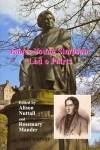
1st June, 6-8pm: The Accoucheur: Sir James Young Simpson (exhibition opening and talk)
Morrice McCrae: The Turbulent Life of a Medical Pioneer
In 1847, Simpson challenged the medical convictions of the time and demonstrated that a woman could be safely delivered from the pains of traumatic labour by the administration of general anaesthetic. He later added to his fame when he introduced chloroform, which was endorsed by Queen Victoria and administered during the birth of Prince Leopold in 1853. Join us for a special evening celebrating the bicentenary of Sir James Young Simpson and learn of the remarkable journey made by the seventh son of a village baker from his rural home to Medical Professor, Physician to the Queen and one of the greatest figures in the history of medicine.

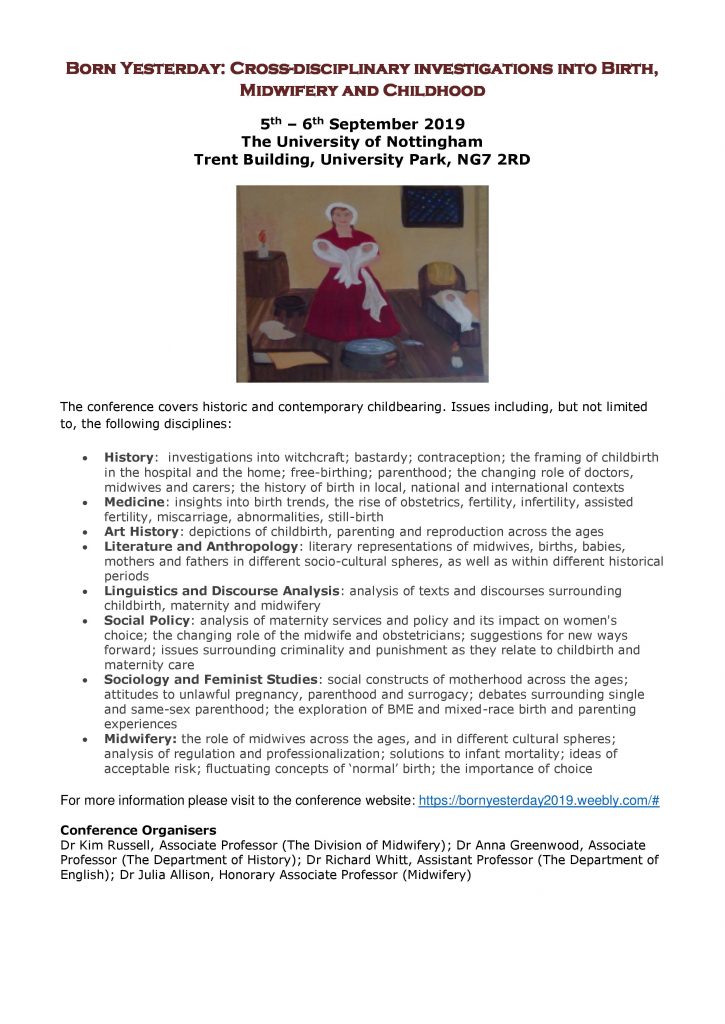
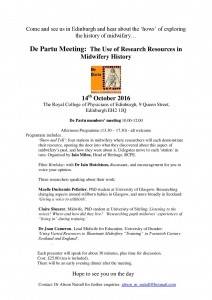

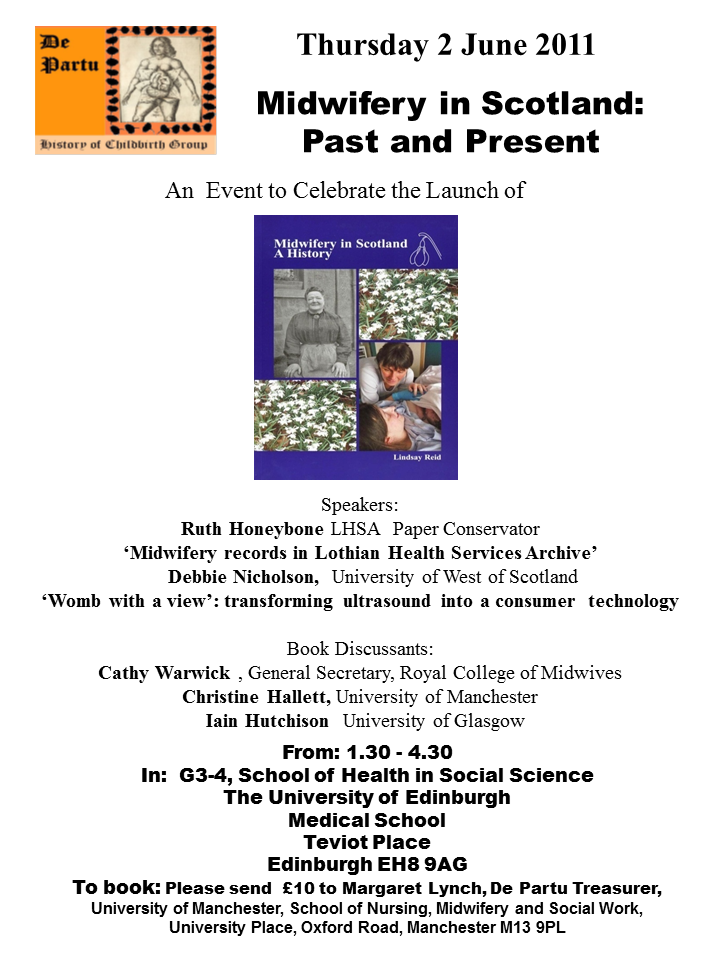

hOur company provides supreme quality pills. Look at our health contributing website in case you want to feel healthier. Our company provides herbal health and related products. Take a look at our health contributing website in case you want to feel healthier. Our company provides a wide variety of pills. Look at our health contributing website in case you want to look better. Our company provides supreme quality health products. Visit our health contributing website in case you want to look healthier. Our company provides a wide variety of non prescription products. Take a look at our health portal in case you want to look better with a help generic supplements. Our company offers safe general health products. Take a look at our health contributing portal in case you want to look better.
Our company offers supreme quality healthcare products. Look at our health contributing website in case you want to strengthen your health. Our company offers a wide variety of non prescription products. Look at our health website in case you want to look healthier with a help health products. Our company provides a wide variety of non prescription products. Take a look at our health site in case you want to look healthier with a help of health products. Our company offers a wide variety of non prescription drugs. Look at our health site in case you want to to improve your health with a help general health products. Our company provides a wide variety of non prescription products. Look at our health portal in case you want to feel better with a help health products.